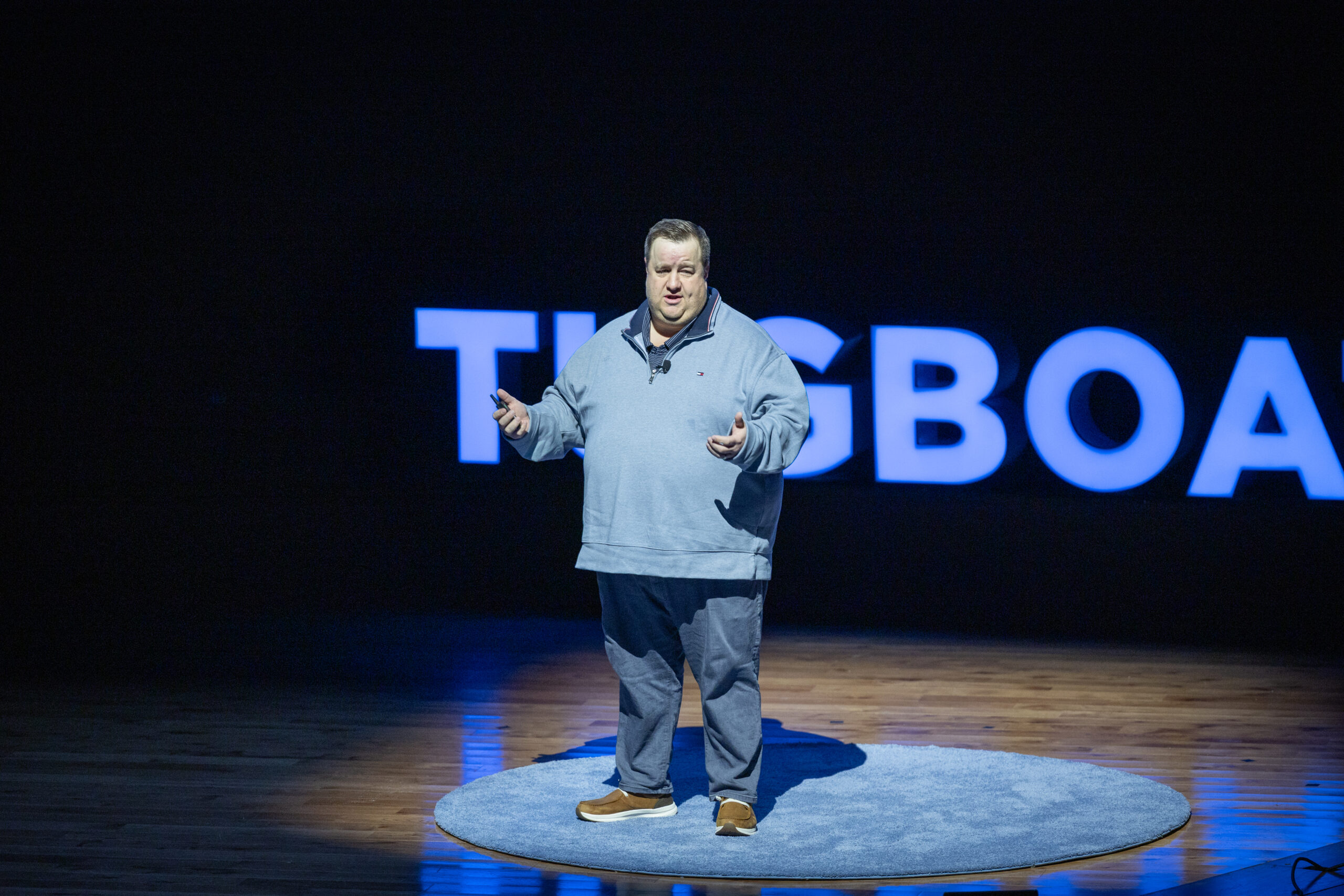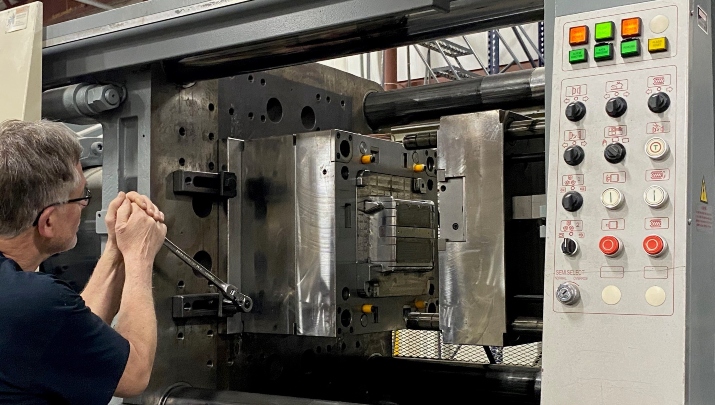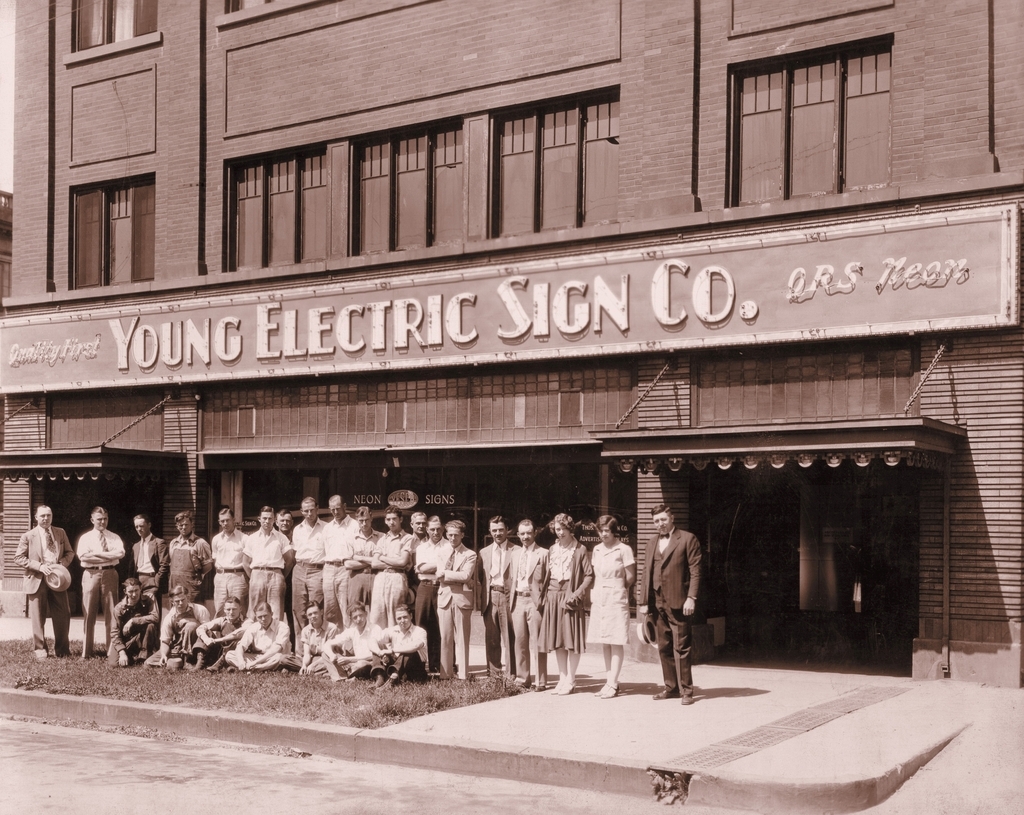
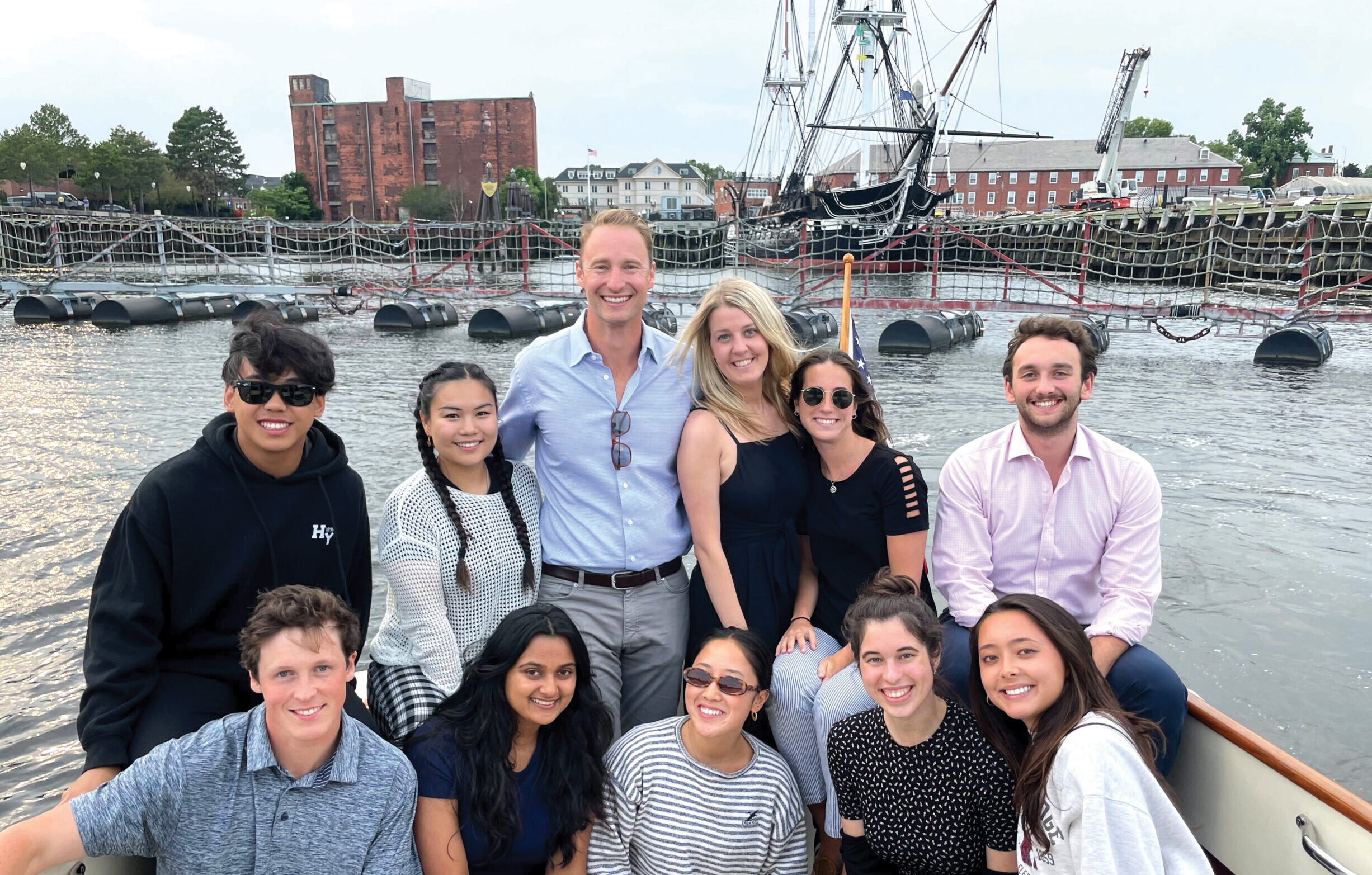
The Power of Patience: Our Long-Term Talent Strategy
- Daniel Wallace
- Force Factor
The years following the pandemic brought with them the tightest labor markets we’ve seen in decades. If you are paying attention to demographic data and the outlook for the coming decades, you know that this is not likely to abate soon. The quest for talent stands as a perpetual challenge; the pursuit of individuals who not only have the skills and experience we seek but who also bring fresh perspectives and untapped potential is a mission critical endeavor. At Force Factor, the global health company I founded 15 years ago, we have been tackling this challenge through an exciting and evolving initiative: robust internship programs and leadership development initiatives.
At Force Factor, we develop and sell nutritional supplements and formulas whose efficacy is founded in scientific research. However, we do not manufacture our own products. We are asset light, which has its advantages, but which also means that our people and the processes they help us create and maintain are, by far, our greatest asset. As an Evergreen® company with strong People First values, it is part of our strategic vision to build our company with our team. Our team is everything.
At 15 years old, Force Factor is still relatively young, but we have moved out of the beginning phases of company building. We have achieved a level of stability that allows me to lengthen my time horizons as I think and plan for the future. We compete against some giants, such as Nestle and Unilever, as well as a great many companies that have been acquired by private equity. In this competitive landscape, therefore, I am always asking myself, what is our greatest competitive advantage? Our greatest difference from most of our competition is our ability to think in long time horizons.
Because of our Evergreen orientation and because our people are paramount to our success, culture is critical. Paying attention to building culture is a long-term initiative. As a part of this, onboarding, training, and developing people is also something that takes time. There are advantages to hiring in people with deep experience in a specific area of leadership, and sometimes this is the right way to build out the team. But where possible, I find it is powerful and critical to building a strong culture to hire people early in their careers and invest in them, over time.
Like many companies, we have long had a summer internship program. As we considered strategy for team building and the future of our company, we have doubled down on this program, expanding its scope and objectives a great deal. Force Factor’s internship ecosystem now includes four entry points tailored to various stages of academic and professional development.
At the core of this program is the summer internship program, providing college students with hands-on experience and exposure to the company’s operations. This is our third year of scaling our internship program and it has grown significantly each of those three years. Last summer we had 11 interns, which was a jump from the year before, and we expect to see that number increase again this summer. We are a company of just under 50 employees, so this is quite significant. Our focus is hiring locally, because we figure these students had a college experience heavily impacted by covid and have spent quite a lot of the past few years online. We think the in-person experience is powerful for them, and it is easier to teach them the business when they are here with us. We are fortunate to be in Boston, which is home to a lot of great universities, so the pool we are drawing from is deep.
The next program we are piloting is called the Coop Program. The Coop program is something that has existed at Northeastern University for a long time and it is powerful and unique. Students at Northeastern are strongly encouraged – even required in some majors – to spend two to three semesters of their time in college doing a Coop, or an internship, for a company. The university has built an incredible network over the many years it has been doing this, and has partnerships with companies in Boston, across the US, and across the world. Students work full-time, are compensated, and receive college credit for their work. We’d been talking about participating in the program for a long time, and we finally jumped in. Our first three Coops started this winter. In a lot of ways their experience is similar to the summer interns, but it affords some advantages the summer positions do not. Coops are here for longer than the summer interns since they spend the whole semester with us. While the summer interns love being part of a large cohort, there is something powerful in the focus we can maintain on this much smaller group of Coops while they are here. We’re really excited about this and expect to see it develop in the future.
Beyond the internship and Coop programs, Force Factor also participates actively in recruiting recent college graduates. We do on-campus recruiting and hire for full-time positions. The students will graduate in May and start working with us in August through what we call our Leadership Development Program (LDP). For these hires, we have created a rotational program across six different functional groups, and all hires move through all six over the course of one year. They spend about two months in each one, and at the end of the first year, the have gained an education in the company that has both depth and breadth. At the end of that time, the hope is that there is strong Venn diagram overlap between a student and a department where they have really thrived and contributed. If this goes in both directions, we move that person permanently into that department. We are in the process of doing that now with the five hires from last year. We are refining it as we go, but basically, after completing the program, the new hire will come into their permanent department one level above where they would have if they had been just hired off the street straight into the job.
Finally, our fourth entry point is aimed at bringing in people who are a little less green. We are actively hiring people out of MBA programs for specific positions within the company as well. We have just hired two, one of whom has already started and one who will start at the end of the summer.
We have been paying attention to retention of the young people who come in through these various programs. The programs require a lot of time and investment from the current team and from the company. The idea is that many of them will come back and become full-time employees. We want to be careful not to become a school, where people come in, learn powerful lessons, and then say, “Thanks!” and head off to work somewhere else. We had this in mind as we designed the programs, and we work hard to give them an experience that will make the right ones want to come back. It’s early still, but it’s looking promising. The woman on our talent acquisition team, for example, who is working right now to hire the next class of interns, was our intern two years ago.
There are other tweaks and improvements we have made and will continue to make as we go forward, but we are getting better at this. The first hire is the hardest, and after that, as you take lessons from your experience, you learn and refine. For example, we hired a few people who, based on their resumes, looked like they were skilled in Excel, but they were not. We learned that it was important to control for specific skills that are important to us, so we have implemented a simple Excel test, and now we don’t have that problem anymore. Most importantly, as we gain experience and as a few intern cohorts pass through the program, it gains renown and popularity, which helps draw even better people the next time around.
While the immediate returns on hiring recent graduates may seem modest, and the cost and effort may not seem worth it to every company, the compounding effects over time are profound. By nurturing talent from the ground up, we not only instill our People First culture but also harness the potential for exponential growth. Moreover, with an emphasis on meritocracy and diversity, internship programs serve to inject fresh perspectives and innovative thinking into the organization. If you have an urgent problem and need someone with a specific skill to fix it, this is obviously not the best way to get there. But if you can operate with an Evergreen mindset and be patient, this could pay dividends over time. We are counting on it!
More Articles and Videos
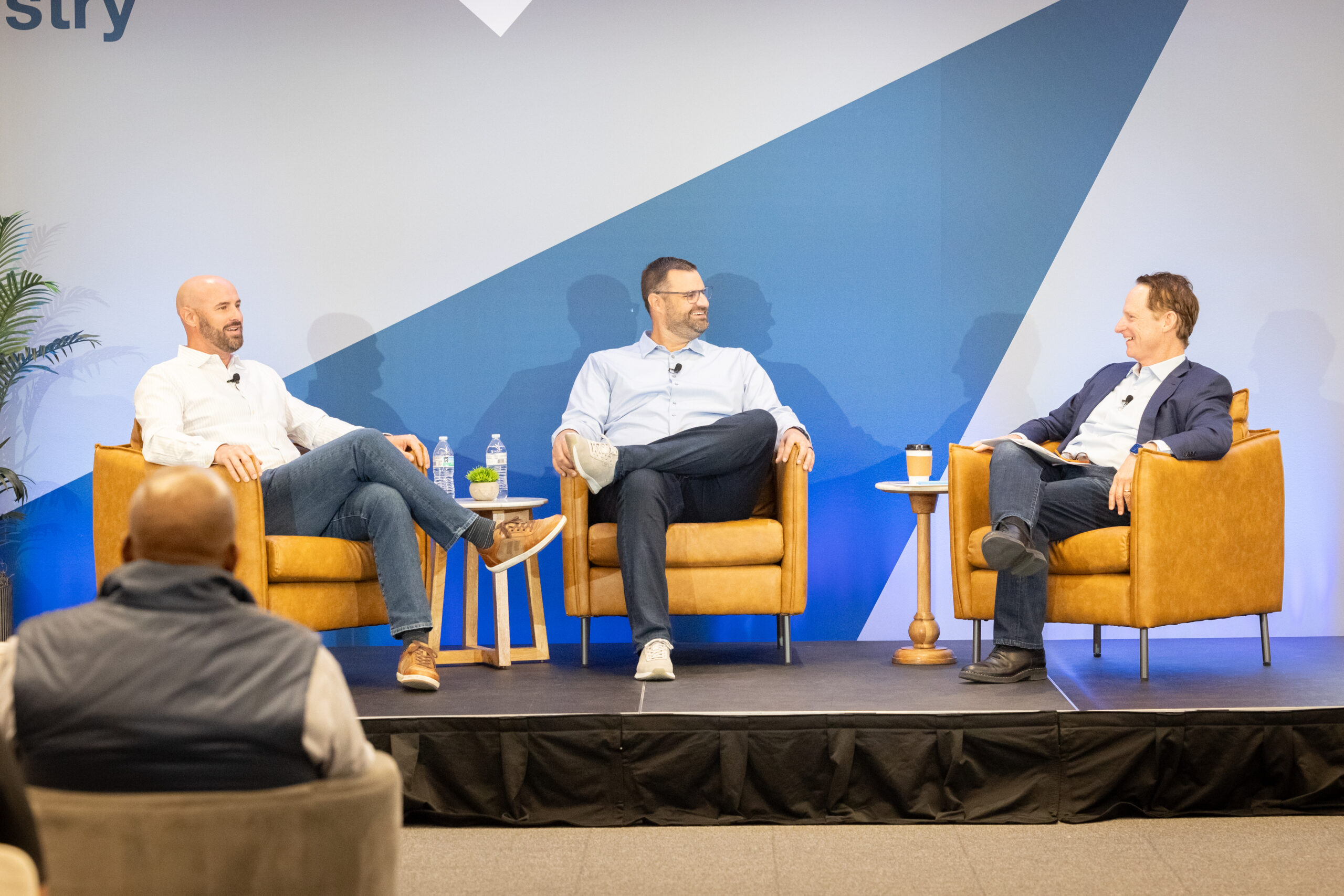
Fireside Chat with Dave Thrasher, Dan Thrasher, and Dave Whorton
- Dave Thrasher, Dan Thrasher, & Dave Whorton
- Supportworks and Thrasher Group

Get Evergreen insight and wisdom delivered to your inbox every week
By signing up, you understand and agree that we will store, process and manage your personal information according to our Privacy Policy
